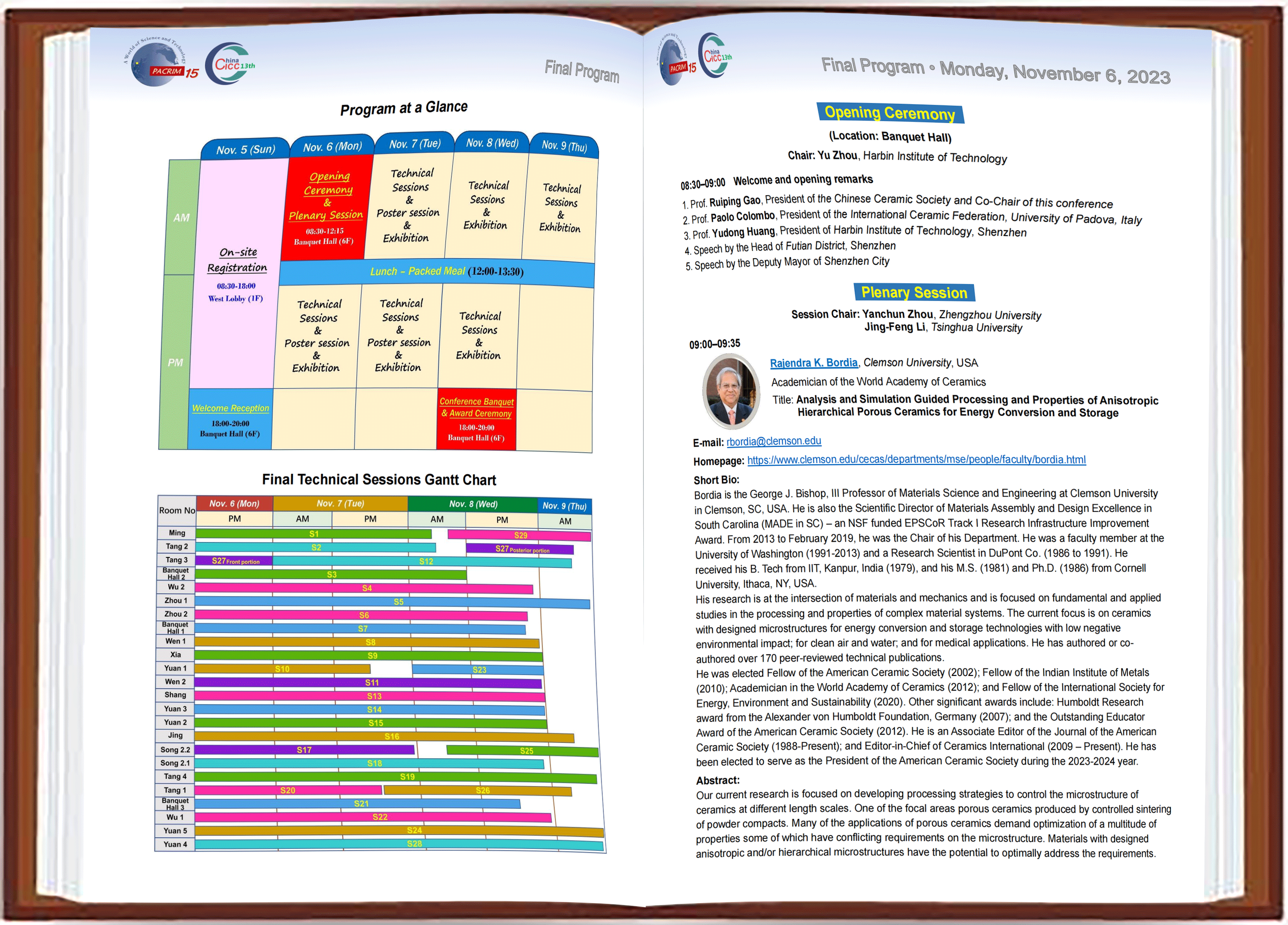
- Registration is NOW OPEN! The early-bird deadline is Sep. 30, 2023. Please don't miss out on the early registration rate! Aug. 21, 2023
- Abstract Submission has been extended to Aug. 15, 2023! Take advantage of the LAST OPPORTUNITY to submit and present your research at the PACRIM15 & CICC-13!
- 3rd announcement-call for abstracts (full-text version)
- 3rd announcement-call for abstracts (short version)
- 2nd announcement-revised version
Venue & address
Contact us
Plenary Speakers
Steven J. ZINKLE,University of Tennessee,USA

World leading expert on the development of high performance, radiation resistant materials for advanced fission and fusion energy applications
Member of National Academy of Engineering
Fellow of APS, MRS, TMS, AAAS, ANS, ASM, ACerS
Title of the Talk: High performance ceramic materials for the extreme environments of fission and fusion energy systems
E-mail: szinkle@utk.edu
Homepage: https://zrg.utk.edu/
Short Bio
Steve Zinkle is the Governor’s Chair Professor for Nuclear Materials at the University of Tennessee, Knoxville, with a joint appointment at Oak Ridge National Laboratory (ORNL). He previously served in various management and technical R&D roles at ORNL including Chief Scientist of the Nuclear Science and Engineering Directorate, director of the Materials Science and Technology Division, and ORNL Corporate Fellow. His research interests include deformation and fracture mechanisms in structural materials, accelerated design and maturation of high-performance structural materials, advanced manufacturing, and radiation effects in ceramics, fuel systems, and metallic alloys for fission and fusion energy systems. His research encompasses basic and applied materials science and engineering investigations under a wide range of extreme operating conditions (e.g., high temperatures, applied stresses, and radiation environments), with a particular emphasis on using transmission electron microscopy and other advanced microstructural characterization techniques to elucidate the linkage between microstructure and properties/performance in materials. He received his PhD in Nuclear Engineering and an MS in Materials Science from the University of Wisconsin-Madison in 1985. He has written over 350 peer-reviewed publications, and is a fellow of the American Nuclear Society (ANS), The Minerals, Metals and Materials Society (TMS), Materials Research Society, American Physical Society, ASM International, American Ceramic Society (ACerS), and AAAS. He received the 2022 ANS Seaborg medal for outstanding scientific or engineering research achievements associated with the development of peaceful uses of nuclear science; other awards include the 2018 ASM International Gold Medal, the 2017 TMS Robert Franklin Mehl award, the 2017 ACerS Edward Orton, Jr. Memorial Lecture, and the 2006 U.S. Department of Energy (DOE) Ernest Orlando Lawrence Memorial Award. He has served on a variety of national and international committees including the National Academies National Materials and Manufacturing Board (2015-2020) and the DOE Fusion Energy Sciences Advisory Committee (2009-2015), and is currently on the National Academies Condensed Matter and Materials Research Committee. He is a member of the National Academy of Engineering.
Abstract body:
Access to a variety of economic and environmentally sustainable energy sources is important for international energy security. Nuclear (fission) power currently provides ~12% of the world’s electricity, and a variety of fission and fusion energy concepts are under consideration for meeting growing future energy needs. There is also growing interest in nuclear power to enable future science missions involving space exploration and other demanding applications. These next generation nuclear energy systems will require development of advanced high-performance materials due to the extreme operating environment that typically includes high temperatures, high neutron displacement damage levels and (for fusion first wall materials) intense particle bombardment operation. Key materials science challenges and research needs associated with reliable operation in these extreme operating environments will be summarized, with particular emphasis on ceramic materials. The potential roles of high-performance ceramic materials to meet these challenging operational environments will be discussed. These include MAX-phase ceramics, Ultra-high temperature ceramics, Complex concentrated ceramics (CCCs, also known as high entropy ceramics or multiple principal element ceramics), and a variety of ceramic-matrix composites.

